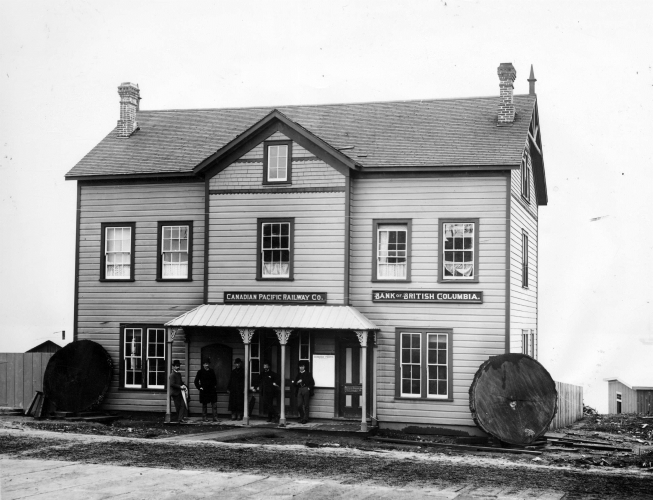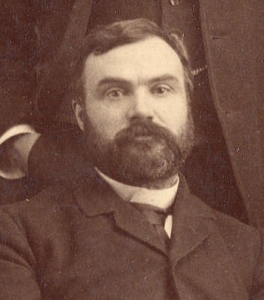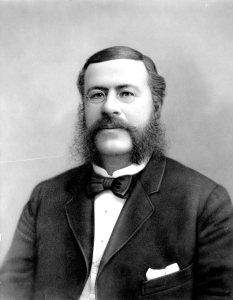Vancouver versus New Westminster, 1887
The following report appeared in the [Vancouver] Evening Herald of Wednesday, 26 October 1887:
The Chess Match between Vancouver and New Westminster players took place at the rooms of the Chess and Draught Club here, last night. Contrary to expectations only two of the Westminster players put in an appearance, viz.: Senator McInnis and Mr. J.C. Brown. Our players had hoped to meet at least four or five players, and were consequently somewhat disappointed. However a very enjoyable game was had, resulting in favor of the home team by seven to one, and one drawn game. The following were the order of the games: -
Vancouver Westminster Hirschberg 2-0 Brown Keith 2-0 Brown Keith 2.5-0.5 McInnes Hoffer 1-1 McInnes At the conclusion of the match the company adjourned to the Gold House [Hotel], where an elegant repast was spread, and to which full justice was done by both victors and vanquished. After the inner man had been satisfied a pleasant hour was spent in speechmaking, songs, recitations, etc. Our boys expect to go to the Royal City in a short time to play a return match.
So what does this tell us about the history of chess in this province? Not much from a technical point of view, as none of the games have come down to us, although it appears the Vancouver club was considerably stronger than the one in New Westminster, despite the latter city having the greater population until the first decade of the twentieth century. However, from the use of city directories and a small amount of conjuncture it has been possible to identify all the players involved, and this sheds considerable light on the social history of chess at the time. All the individuals named were in the upper echelons of society, and would have been considered among the movers and shakers of their time. The origin of the New Westminster club remains uncertain, but the beginnings of this edition of the Vancouver CC were the result of a catastrophe the previous year. On 13 June 1886 the newly-incorporated city of Vancouver was almost entirely destroyed by fire. The city quickly rebuilt, and by the following September a Vancouver branch of the Bank of British Columbia, managed by J.C. Keith, opened in a building which also housed the C.P.R. offices. Within a year the Daily Herald could announce the formation of a chess club using the bank's premises – Keith was one of the founding members. Every indication we have is that the club was still meeting there two months later when the match with New Westminster took place.

First C.P.R. depot with Bank of B.C. offices on the right. City of Vancouver Archives AM54-S4-: Can P9
Born in Scotland, James Cooper Keith (1852-1914) came to Victoria in 1876 before settling in Vancouver in 1886. Apart from his career as a banker, Keith later served as President of the Board of Trade and was an important figure in the development of North Vancouver, holding the position of Reeve of the municipality and lending his name to one of its main highways, Keith Road. Another figure with connections to the North Shore was German-born Martin H. Hirschberg (1834?-1896), an accountant connected with the Daily News Advertiser newspaper, who was the first Clerk of the District of North Vancouver in 1891. And the third member of the Vancouver team was the resplendently named Noble Stonestreet Hoffar (1843-1907), although his last name was frequently misspelled as Hoffer. Born in Washington, D.C., Hoffar graduated from Georgetown College before moving to the Western states where for a time he was engaged in mining. In 1872 he settled in Los Angeles and adopted his subsequent profession of builder and architect. He spent time in Oregon, Victoria, Nanaimo, and New Westminster before fortuitously arriving in Vancouver the day before the great fire; his skills were much in demand as the city rebuilt and prospered in the following decades.


